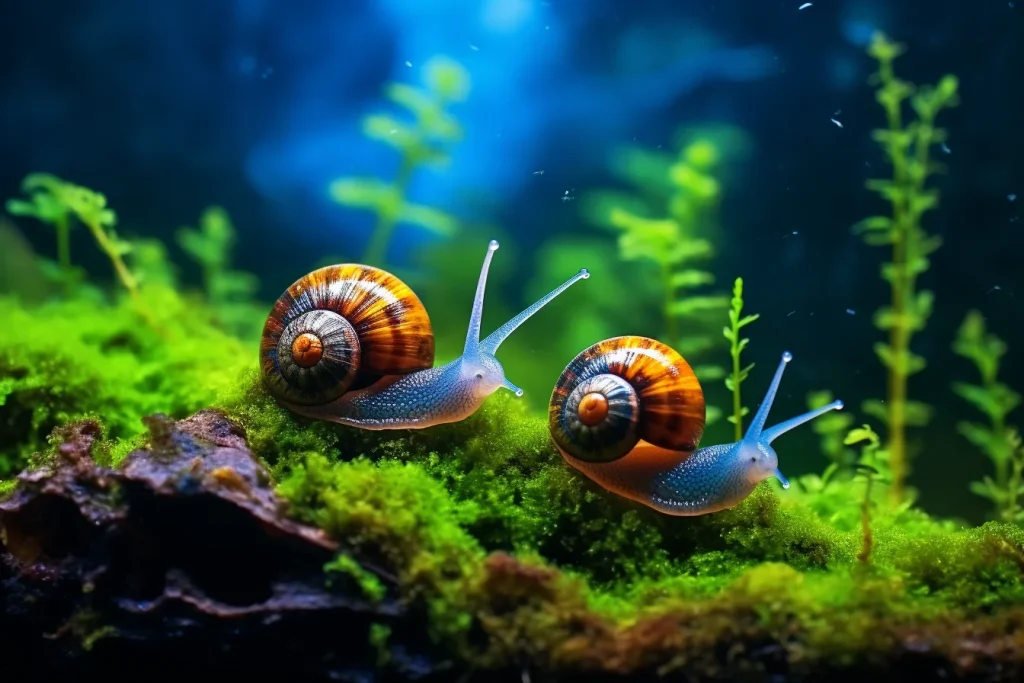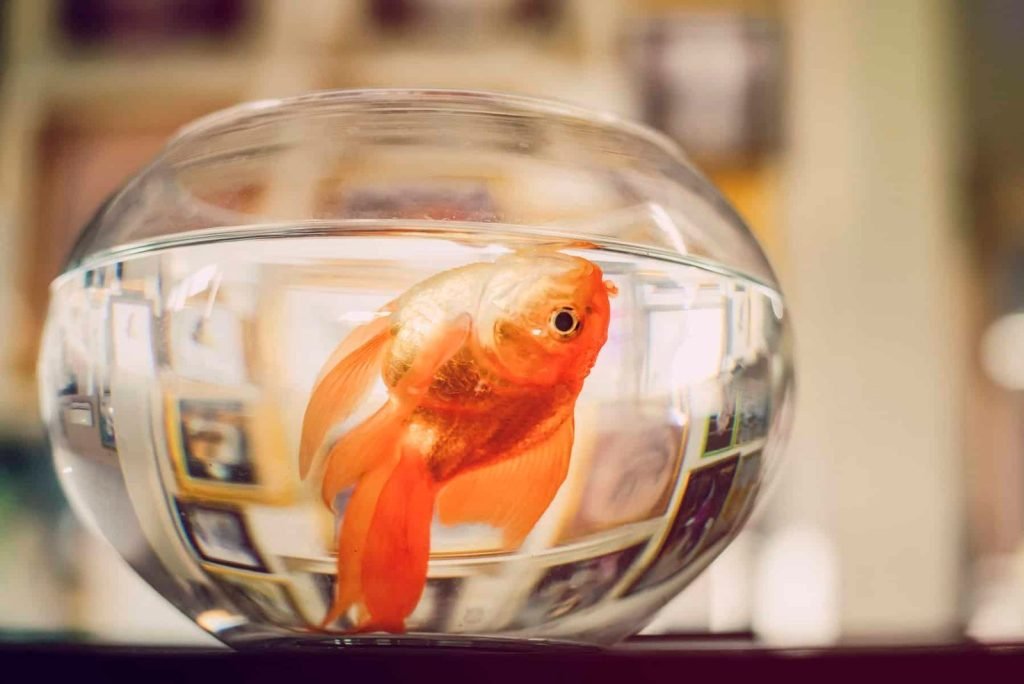Introduction
Have you ever looked at those stunning discus fish and wondered if they come from the ocean or a freshwater river? With their vibrant colors and circular shape, it’s an understandable question! Discus fish are hugely popular in the aquarium world, but there’s some confusion about whether they are freshwater or saltwater species.
Well, get ready to have that mystery solved once and for all! In this guide, we’ll dive deep into the natural habitats of these amazing fish and uncover the truth about where they really belong.
Exploring Their Roots: The Amazon River Basin
To understand if discus fish are freshwater or saltwater, we need to look at where they originally come from – the mighty Amazon River and its winding tributaries in South America.
This vast river basin, teeming with unbelievable biodiversity, is the native home to discus fish. The waters they inhabited were:
- Warm (between 82°F and 92°F)
- Soft, with low mineral content
- Slightly acidic (pH 6.0 to 7.0)
These specific freshwater conditions allowed the ancestors of modern discus fish to adapt and evolve over thousands of years. Their bodies became perfectly suited to thrive in this lush, warm, plant-filled environment.
What Makes a Fish “Freshwater”?
But what officially qualifies a fish as being freshwater rather than saltwater? It all comes down to two main factors:
- Their Natural Habitat Freshwater fish, by definition, originate from rivers, lakes, streams and other bodies of water with low salinity (saltiness). Saltwater fish, on the other hand, come from the oceans and seas with much higher salt levels.
- Biological Adaptations Just like humans can’t drink saltwater, most freshwater fish have adapted to only be able to survive in low-salinity environments. Their bodies aren’t able to process and get rid of excessive salt intake.
When we look at discus fish’s roots in the Amazon and their inability to handle high salt levels, it becomes crystal clear – they are 100% freshwater species through and through!
The Key Differences: Freshwater vs Saltwater
To really drive home why discus fish don’t belong in saltwater, let’s compare some of the major differences between freshwater and marine (saltwater) fish:
Freshwater Fish
- Come from lakes, rivers, streams
- Can’t tolerate high salt levels
- Bodies retain water easily
- Behaviors/features adapted for freshwater living
Saltwater Fish
- Native to oceans and seas
- Need saltwater to survive
- Must drink lots of water to stay hydrated
- Specialized for marine environments
It’s easy to see that trying to keep a fish like the discus, evolved for the freshwater Amazon, in a saltwater tank would be disastrous for its health and well-being. Their bodies simply aren’t equipped to handle it.
Setting Up an Ideal Freshwater Home
So now that we know discus fish are obligate freshwater species, how can we recreate that perfect Amazon environment in our home aquariums? Here are some key things to focus on:
Water Quality
The #1 priority is nailing those ideal water parameters that mimic their natural habitat:
- Temperature: 82°F – 86°F
- pH: 6.0 – 7.0 (slightly acidic)
- Hardness: 1 – 4 dGH (soft water)
Using high-quality test kits and doing regular partial water changes is a must to maintain these levels. Discus are also very sensitive to ammonia and nitrite, so a mature, cycled tank with excellent biological filtration is non-negotiable.
Diet and Feeding
In the wild, discus get their nutrients from a varied diet of:
- Worms
- Insects
- Plant matter
- Crustaceans like shrimp
Replicating this in the home aquarium means feeding them a high-quality staple food like pellets or flakes, supplemented with treats like:
- Frozen brine shrimp, bloodworms, beef heart
- Live foods like white worms, brine shrimp
- Blanched veggies
Discus have small stomachs, so frequent small feedings work best.
Tank Mates
While discus are generally peaceful community fish, they don’t do well with aggressive tank mates that may nip at their long fins or out-compete them for food. Some good tank mate options include:
- Tetras
- Rasboras
- Non-aggressive small catfish species
- Dwarf cichlids (with caution)
Providing plenty of swimming room, hiding spots, and making sure discus are well-fed goes a long way to minimizing any territorial behavior.
Breeding Discus
One of the biggest draws of discus is their uniquelaying eggs adhered to surfaces, making their masterful parenting behavior a joy to observe.
However, successfully breeding discus requires exceptional water quality, a breeding pair in peak condition, and very precise environmental triggers. It’s an advanced challenge best left to experienced discus-keepers unless you’re prepared to go all-in. breeding behavior where the parents tenderly waft water over their eggs and wriggling fry. With the right setup, these fish may reward you by spawning, laying eggs adhered to surfaces, and showcasing their masterful parenting skills.
That said, discus breeding is an advanced pursuit requiring exceptional water quality, a well-conditioned breeding pair, and very specific environmental triggers like temperature changes and day/night cycle manipulation. For beginners, it’s best to gain experience with simply keeping discus thriving first before attempting to breed them.
Myths Busted: Addressing Common Discus Misconceptions
Even with all this information about discus being obligate freshwater fish, there are still some persistent myths out there that need busting:
🚫 Myth: Discus can be slowly acclimated to live in saltwater Fact: This is extremely stressful and harmful for discus. Their bodies are not able to process salt no matter how “slow” the process.
🚫 Myth: Keeping them in slightly brackish (semi-salty) water is okay Fact: Any salinity levels over those found in freshwater can cause health issues over time. Brackish is still too much for discus.
🚫 Myth: Discus are hard to keep alive because they’re delicate Fact: When their specific water and environmental needs are met, discus can be quite hardy fish with long lifespans.
The Bottom Line
Hopefully by now it’s crystal clear – discus fish are 100% freshwater species through and through. Their Amazon river origins and biological make-up are not suited at all for saltwater conditions.
With proper water quality, diet, tank mates, and mest their habitat needs, these beautiful ambassadors of South America’s freshwater ecosystems can thrive for years as the centerpiece fish in a planted home aquarium. Keeping them in anything but pristine freshwater is not only inadvisable, but potentially fatal.
So embrace the challenges and joys of keeping discus fish in the environment they’ve spent thousands of years evolving for – a spectacular slice of the Amazon river basin right in your living room! With some research and care, you’ll be rewarded with the sight of these gorgeous fish showing off their impressive fins and vibrant colors for years to come.
Let me know if you need any other discus fish care tips or have additional freshwater vs saltwater questions! I’m always happy discuss these amazing Amazon ambassadors further.


